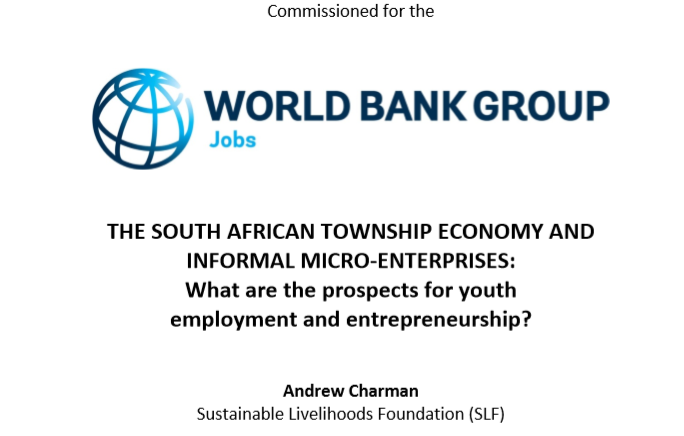The South African Township Economy and Informal Micro-Enterprises
What are the prospects for youth employment and entrepreneurship?

01 June 2016
English
Township Studies Librarian One, uKESA Librarian
Policy brief
Council for Scientific and Industrial Research, Township Studies Group
Africa
Youth unemployment in South African has reached alarming levels. Against an economic backdrop in which the total rate of unemployment has progressively risen, now 26.7%, the level of youth unemployment is 54.5% (narrow definition) (StatsSA,2016:29). The challenge of bringing youth into the economy is particularly worrisome in the urban township context. In Gauteng, where opportunities for employment are greatest, youth unemployment still exceeds 30%. Youth access to the formal job market is constrained by the comparatively poor education standards of township primary educational institutions. As a result, the rate of school non-completion is high in absolute terms, whilst those matriculating have reduced opportunities for post-school training. Two other factors negatively affect labour market access. First, the spatial dislocation of the townships from commercial centres makes job seeking costly. Second, pervasive unemployment in combination with family legacies of low skilled (and low paid) work means that the youth have relatively weak social networks informal labour markets, especially in sectors such as trade, finance, and services were jobs have been created. In order to work, most youth will need to find employment in the informal sector. Yet data on labour force participation indicates that youth are not widely active in self-employed activities or informally employed in micro-enterprises. So what then are the prospects for youth employment in informal micro-enterprises? This brief discusses the statistically obscure (under-reported in QLFS) work that youth perform in the township economy. Drawing on survey data and research experience, we analyse the main pathways through which youth enter the informal economy. Finally, we reflect on actions that can amplify youth entrepreneurship and employment.



Comments